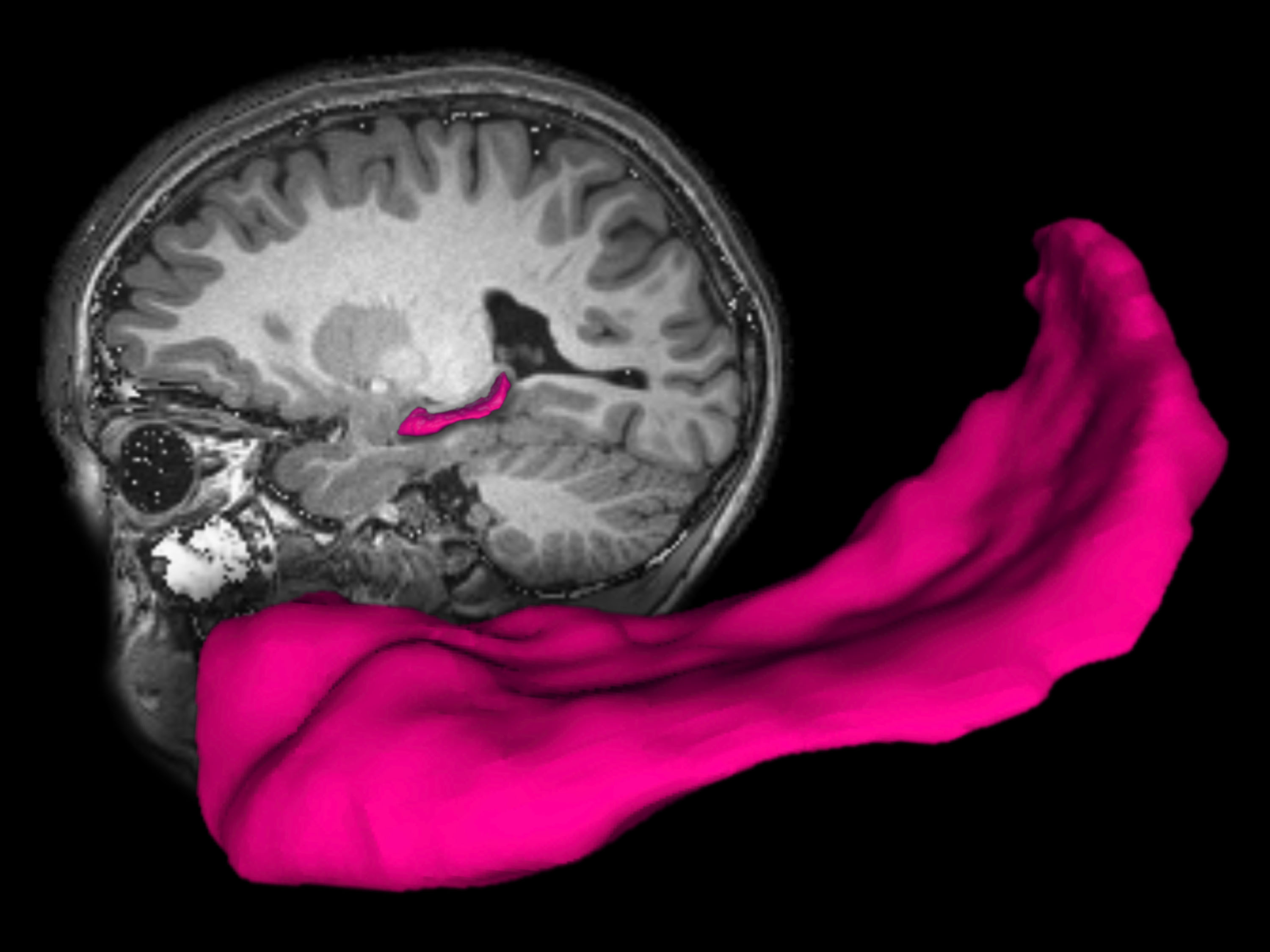
The hippocampus (highlighted in fuchsia) is a key brain structure important to learning, memory and stress response. New research shows that children who were nurtured by their mothers early in life have a larger hippocampus than children who were not nurtured as much.
|
School-age children whose mothers nurtured them psychologically early in life have brains with a larger hippocampus, a key structure important to learning, memory and response to stress.
The new research, by child psychiatrists and neuroscientists at Washington University School of Medicine, is the first to show that changes in this critical region of children’s brain anatomy are linked to a mother’s nurturing. Their research is published in the Proceedings of the National Academy of Sciences.
“This study validates something that seems to be intuitive, which is just how important nurturing parents are to creating adaptive human beings,” says lead author Joan Luby, MD, professor of child psychiatry at Washington University.
“I think the public health implications suggest that we should pay more attention to parents’ nurturing, and we should do what we can as a society to foster these skills because clearly nurturing has a very, very big impact on later development.”
As part of the study, children were observed and videotaped interacting with a parent as he or she was completing a required task, and the child was asked to wait to open an attractive gift. How much or how little the parent was able to support and nurture the child in this stressful circumstance—which was designed to approximate the stresses of daily parenting—was evaluated by raters using standard measures.
Imaging tests revealed that the children who had been nurtured in the study scenario had a hippocampus almost 10 percent larger than children whose parents were not as nurturing.
“For years, studies have underscored the importance of an early, nurturing environment for good, healthy out-comes for children,” Luby says. “This study, to my knowledge, is the first that actually shows an anatomical change in the brain. Having a hippocampus that’s almost 10 percent larger just provides concrete evidence of nurturing’s powerful effect.
To read more about the study and access an audio report, visit https://medicine.wustl.edu/news/love-and-the-hippocampus/.